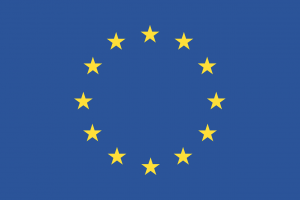Consumer Law
Consumer Rights have increased considerably in the last 20 years. Gone are the days of ‘Let the buyer beware’. There are now complex branches of law protecting the consumer. These changes have mainly come from Europe. They reflex the changes in the way we are now purchasing goods and services through the internet. When a sale is made it is considered by law as a contract between seller and the buyer.

Consumer
A consumer in law is a person who buys goods or a service for personal use.
Contract
A contract is a formal agreement between two people that is enforceable by law. It asks each party to do or stop doing a certain thing. A valid contract requires an offer, acceptance of that offer and ‘consideration’. ‘Consideration’ is something of value which passes between the parties. This is usually money but does not have to be.
Contracts are made up of ‘expressed’ or ‘implied’ terms. Expressed terms are what you have stated to the customer you will do. Implied terms are what the customer could reasonable expect to be given with that type of product or service. Contracts can be written or oral. It is easier to know what the terms are in a written contract but an oral contract is also enforceable in law.
- The Sale of Goods and Supply of Services Act, 1980
- European law
- Consumer information
- Confirmation of contract

The sale of goods and supply of services act, 1980
This is a long standing piece of legislation requiring certain standards from sellers of goods and suppliers of services. Under this Act the purchaser of goods has a number of rights outlined below.
- Goods must be of reasonable quality taking into account what they are meant to do, their durability and price.
- The goods must be fit for purpose. They must do what they are expected to do.
- Goods must be as described. The buyer must not misled the customer into buying something by a false description.
- The supplier must have the necessary skill to provide the service.
- The service must be given with proper care and diligence.
- Materials used will be sound. The goods supplied with the service will be of good quality too.

European Law
European Union Regulations 2013 give more extensive protection to consumers. There is an emphasis on off-premises, distance selling and contracts by electronic means.
There is now a 14-day cooling-off period where the customer can decide to withdraw from the contract. The 14 days begins on the day that they receive the goods. In the case of a service, the cooling-off period begins on the day the contract for distance selling was concluded. With digital content, the cooling-off period expires when the downloading or streaming starts.
In the cases below cancellation wont be accepted.
- The service has already begun with the customer’s agreement.
- Goods cannot be returned because they were made to the customer’s specifications.
- They are liable to deteriorate or expire rapidly.
- The seals have been broken by you and cannot be returned for health or hygiene reasons.
- They are audio/video tapes or computer software whose seals have been broken.
- The goods are newspapers or magazines.
- They were purchased at a public auction.
Consumer information
The following information must be made available to the customer of a distance contract for it to be valid.
- The main characteristics of the good or service.
- The price of the goods, including all taxes.
- Delivery costs, where applicable.
- Arrangements for payment.
- The seller’s complaints handling policy.
- If a right to cancel exists and the conditions, time limit and procedures for doing so.
- Who will bear the costs of returning the goods?
- The estimated cost of returning the goods.
- Conditions of after-sale customer assistance and services, and commercial guarantees.
- The duration of the contract and the conditions for terminating it. If it is extended automatically or is of unlimited duration.
Confirmation of contract
The seller must confirm that the contract is concluded through letter or email. This should include the information mentioned above. It should be sent within a reasonable time after the contract is finished. That is at the latest when the goods are being delivered or the service completed.
